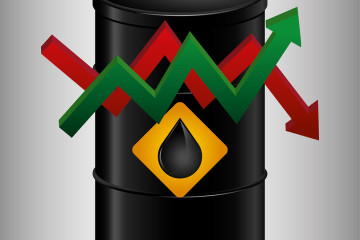Bloomberg Business: Oil Heads for Longest Decline in 6 Years as Glut Seen Worsening

Copyright 2015 Bloomberg.
NIZ0HC6TTDSP
(Bloomberg) — Oil headed for the longest run of monthly losses since January 2009 amid speculation that rising U.S. crude supplies will exacerbate the global glut that spurred last year’s price collapse.
Futures were little changed in New York and set for a seventh monthly drop. U.S. crude stockpiles increased last week to the highest level since at least August 1982, the Energy Information Administration reported on Jan. 28. The U.S. Senate passed a bill to approve the Keystone XL pipeline that would carry Canadian oil to Gulf Coast refineries, circumventing an administration review in progress for six years.
Oil fell into a bear market last year as U.S. production surged to the highest level in more than three decades, driven by new supplies from Texas to North Dakota. Royal Dutch Shell Plc, Occidental Petroleum Corp. and ConocoPhillips have pledged to cut spending by almost $10 billion this year, enough to drill more than 1,400 shale wells.
“Oil is not out of the woods and there are still many expecting lower prices,” Michael McCarthy, a chief strategist at CMC Markets in Sydney, said by phone. “The failure to break significantly through previous lows suggests that the equation is becoming much more evenly balanced. What we’re seeing is bottoming behavior, but it doesn’t imply that we’re going to get a rally anytime in the short term.”
West Texas Intermediate for March delivery was at $44.54 a barrel in electronic trading on the New York Mercantile Exchange, up 1 cent, at 2:30 p.m. Sydney time. The contract climbed 8 cents to $44.53 on Thursday. The volume of all futures traded was about 71 percent below the 100-day average. Prices have decreased 16 percent this month.
Crude Stockpiles
Brent for March settlement was 17 cents lower at $48.96 a barrel on the London-based ICE Futures Europe exchange. It’s down 15 percent in January, also sliding for a seventh month. The European benchmark crude traded at a premium of $4.47 to WTI, compared with $4.06 at the end of December.
Crude inventories in the U.S., the world’s biggest oil consumer, gained by 8.87 million barrels to 406.7 million through Jan. 23, according to the EIA. Output expanded to 9.21 million a day, the most in weekly estimates from the Energy Department’s statistical arm dating back to January 1983.
The Republican-controlled Senate voted 62-36 on Thursday to approve Keystone XL, setting up a conflict with President Barack Obama who has promised a veto. Calgary-based TransCanada Corp. proposed the $8 billion project in September 2008, which would run through Montana, South Dakota and Nebraska, where it would connect to an existing pipeline network.
Saudi Transition
Saudi Arabia’s King Salman brought his own team into government a week after succeeding to the throne, replacing key security and economic officials amid twin threats from Islamic State and plunging oil prices. He appointed his son, Prince Abdulaziz bin Salman, as deputy to Oil Minister Ali Al-Naimi, who kept his job.
Saudi Arabia led the Organization of Petroleum Exporting Countries to maintain its output quota at 30 million barrels a day at a Nov. 27 meeting in Vienna. The 12-member group, which pumps about 40 percent of the world’s oil, produced 30.2 million a day last month, according to data compiled by Bloomberg.
To contact the reporter on this story: Ben Sharples in Melbourne at bsharples@bloomberg.net To contact the editors responsible for this story: Pratish Narayanan at pnarayanan9@bloomberg.net Yee Kai Pin, Aaron Clark







No Comment